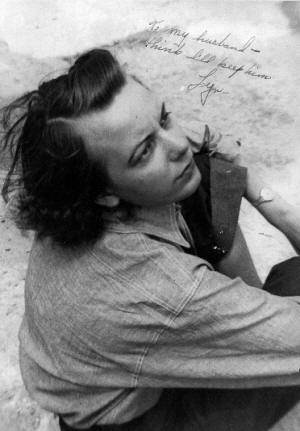|
Sacrifices then, sacrifices now
Memories from the Greatest Generation can inspire us today
By Dr. Mark DePue
 Send a link to a friend
Send a link to a friend
 [May 16, 2020] [May 16, 2020]
As we struggle with the coronavirus today, we would do well to learn
something about how the men and women of the “greatest generation”
coped with adversity during World War II. They knew something about
the pain and anxiety of separation, and about the importance of
joining together to fight a common foe.
They were no strangers to hard times, having survived the Great
Depression. And they were also no strangers to political strife. In
the weeks and months leading up to Pearl Harbor, most polls showed
that Americans wanted nothing to do with “Europe’s war.” But Pearl
Harbor changed all of that – overnight. After that fateful day,
Americans were all in, totally committed to defeating her enemies.
Evelyn Fields’s life is a case in point. She grew up on a small farm
in Nebraska during the worst of the Depression and the Dust Bowl
that ravaged the plains states.
“I’ll tell you what was the worst emotional toll,” she said during a
2011 interview, “the dust storm. … The heat was so horrible, and the
dust was so horrible. Example: In your house, you put little pieces
of paper in the strips of the window, you closed your shades, you
closed your curtains — and this is hot… and you stayed inside the
house just to try to get away from the dust. When night came, you
couldn’t sleep, it was so hot.”
The dust storms played havoc on the family’s crops as well, and thus
their very livelihood. “I remember one year … my mother and father
jumped in the Model T, went out to the corn field, and looked, and
found one ear of corn. So their whole year of labor was one ear of
corn. That’s how bad it was.”

What kept them going? Evelyn shared fond memories of beautiful
Christmas celebrations in their country church, of the shows she
enjoyed on their battery powered radio, and of the songs of the era.
“Every time you have a season in history that changes, you have
songs that go with it,” she explained. “You had the one about ‘We
ain’t got a barrel of money / Maybe we’re ragged and funny / but
we’ll travel along / singing our song / side by side.’ And they did,
and you couldn’t help but think of those people traveling in their
cars — they’re hungry, they’re dirty, they got the clothes on their
back and a mattress tied to the top, and you know they were singing
‘Side by Side.’”
And then came the war.
Evelyn was working in Chicago when she met William C. Fields while
he was going through training at Great Lakes Naval Training Center.
They were married in February 1944, just weeks before he shipped out
to the Pacific on the destroyer USS Putnam. While Bill served in the
Pacific, Evelyn spent her war working for the Office of Price
Administration.
She helped ease the pain of separation by writing to Bill every day,
never knowing where the letter would reach him, or even if it would
find him alive. Her best days were the ones when she received mail
from him. “Wish I was getting off duty now,” Bill wrote in one of
those letters, “catching a North Shore train, hurrying home.”
[to top of second column] |



Often, Bill included a special treat for Evelyn, a poem perhaps, or
a sketch of Evelyn created during a spare moment from his duties on
a ship in hostile waters. It is little wonder that Evelyn cherished
those letters and sketches for the rest of her life.
Today we face serious trials of our own, challenges that many
compare to those dark days of World War II. And while most of us are
isolated in our homes, we have so many advantages over our WW II-era
parents and grandparents. We have instant communication through our
cell phones and social media. Many of us have wide screen TVs to
keep us entertained.
Those serving on the front lines today are doctors and nurses, first
responders, cashiers in grocery stores and fast food restaurants,
farmers and truck drivers. We all have been touched in some way. We
all know someone on the front lines. We fear for our loved ones and
our own health. But we also know that together we will beat this
scourge and emerge just a bit wiser on the other side.
Sadly, Evelyn passed away on March 28 at 97, but her spirit lives on
in her stories of courage, love and humor that continue to inspire
us today.

Mark DePue is the Director of Oral History at the Abraham Lincoln
Presidential Library and Museum. You can listen to Evelyn Fields’s
entire story, and those of countless others at
www.oralhistory.illinois.gov.
For more information, visit www.PresidentLincoln.illinois.gov.
[By Dr. Mark DePue] |